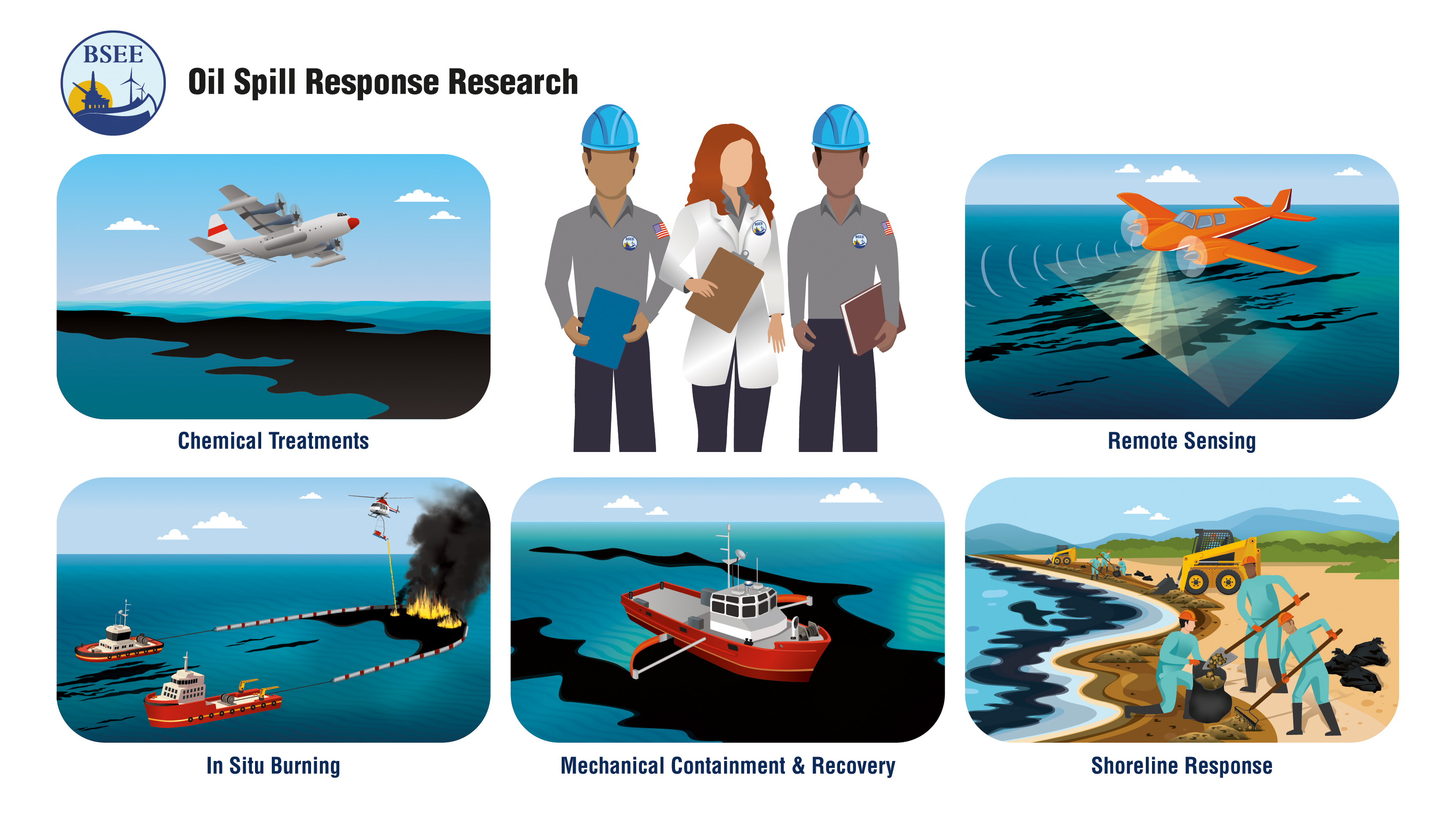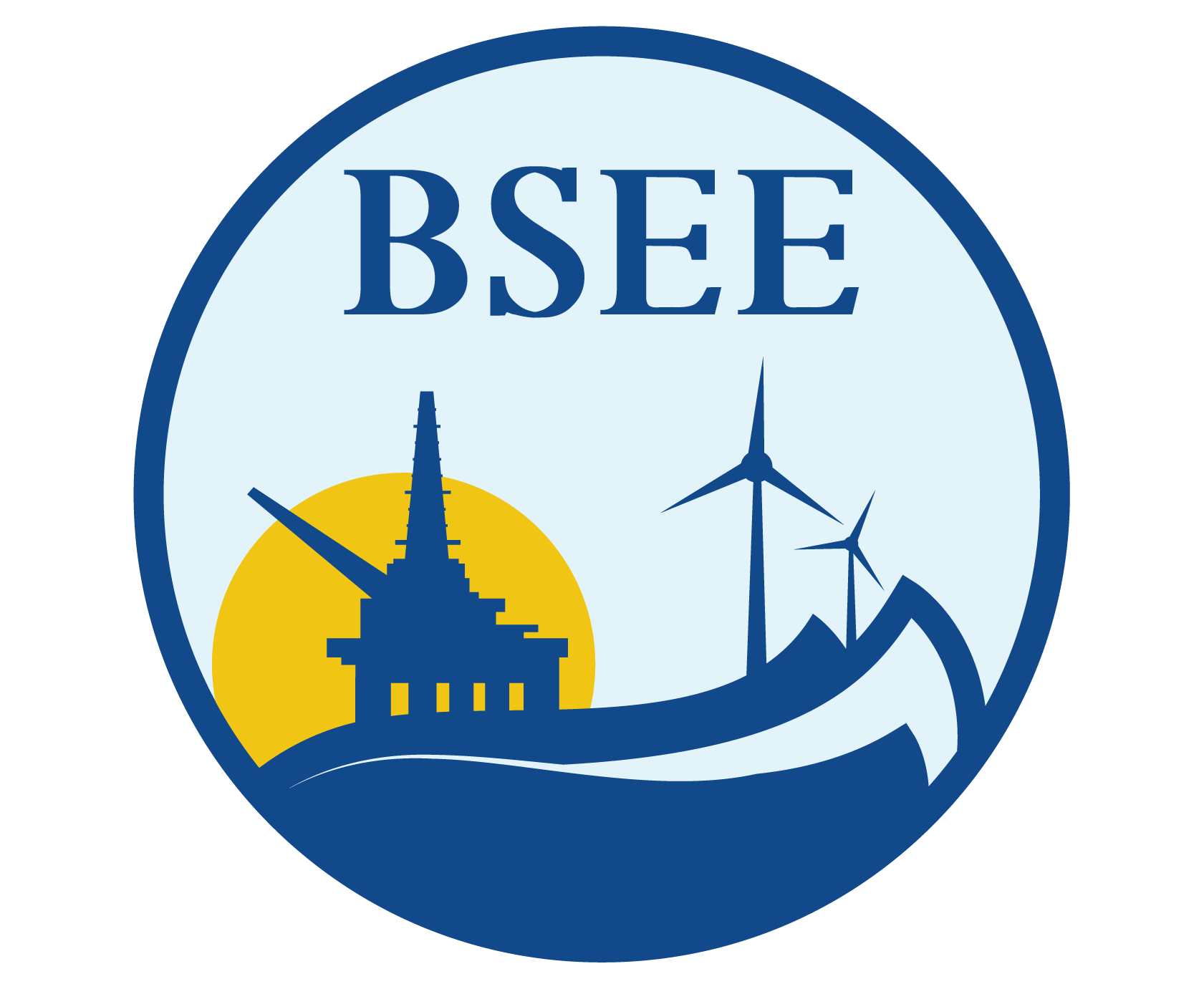Oil Spill Response Research (OSRR) is one of the three essential roles of BSEE’s Oil Spill Preparedness Program and the Bureau’s related responsibilities are acknowledged in the National Contingency Plan (40 CFR Part 300—Oil Spill Response Appendix E – Section 6.4.5). The Oil Spill Preparedness Division’s Response Research Branch (RRB) shepherds the OSSR role to provide offshore owners and operators and other stakeholders with new or improved technologies, tools, and procedures to combat oil spills.
The technologies and data produced from robust government R&D inform regulatory updates, improve contingency plans, enhance the response tools in oil spill removal organization equipment inventories, and support safe and environmentally sustainable operations for offshore energy exploration and development. Government sponsored R&D also spurs economic growth by reducing the impacts of oil spills, yielding new innovations in technologies and tactics, identifying research gaps and dead-ends, and reducing investment risks for private R&D entities.
BSEE Research Scientists and Engineers perform the full spectrum of R&D (basic, applied, and developmental research) to advance the detection, containment, and cleanup of oil spills that may occur from offshore facilities. Specific research emphasized includes mechanical containment and recovery, remote sensing, in-situ burning, chemical treatments such as dispersants and herders, and incident management team decision-making tools. You can learn more about BSEE’s efforts in these research areas by reviewing our projects at Research Records | Bureau of Safety and Environmental Enforcement (bsee.gov).
The RRB coordinates research efforts between organizations and disseminates findings and recommendations through a variety of internal, public, and international forums, such as formal committees, workshops, conferences, publications, and the Internet. White papers and research proposals are most often solicited through announcements published on the beta.SAM.gov website. Unsolicited research proposals can also be submitted for consideration through the BSEE Acquisitions Management Division.
Interagency Coordinating Committee on Oil Pollution Research (ICCOPR)
The Oil Spill Preparedness Division serves as the BSEE representative and key member of ICCOPR, a 16-member Interagency Committee established by Title VII of the Oil Pollution Act of 1990 (Section 7001).
ICCOPR’s Mission
"To coordinate a comprehensive program of oil pollution research, technology development, and demonstration among the federal agencies, in cooperation and coordination with industry, universities, research institutions, state governments, and other nations, as appropriate, and shall foster cost-effective research mechanisms, including the joint funding of the research."
ICCOPR meets quarterly and periodically publishes an Oil Pollution Research and Technology (R&T) Plan that assesses the current state of oil pollution research and establishes priority research needs. The current R&T Plan was published in 2021 and identifies 171 priority research needs in 28 Standing Research Areas - many of which directly inform the Bureau’s R&D needs and priorities.
OSPD Research Report Specifications
(Instructions for authors, vendors, contract and project managers.)
OSPD Report Specifications - A pdf document that describes the requirements for preparing reports in OSPD.
OSPD Report Template - A Microsoft Word document that serves as a template for starting a report that complies with the OSPD Report Specifications.

